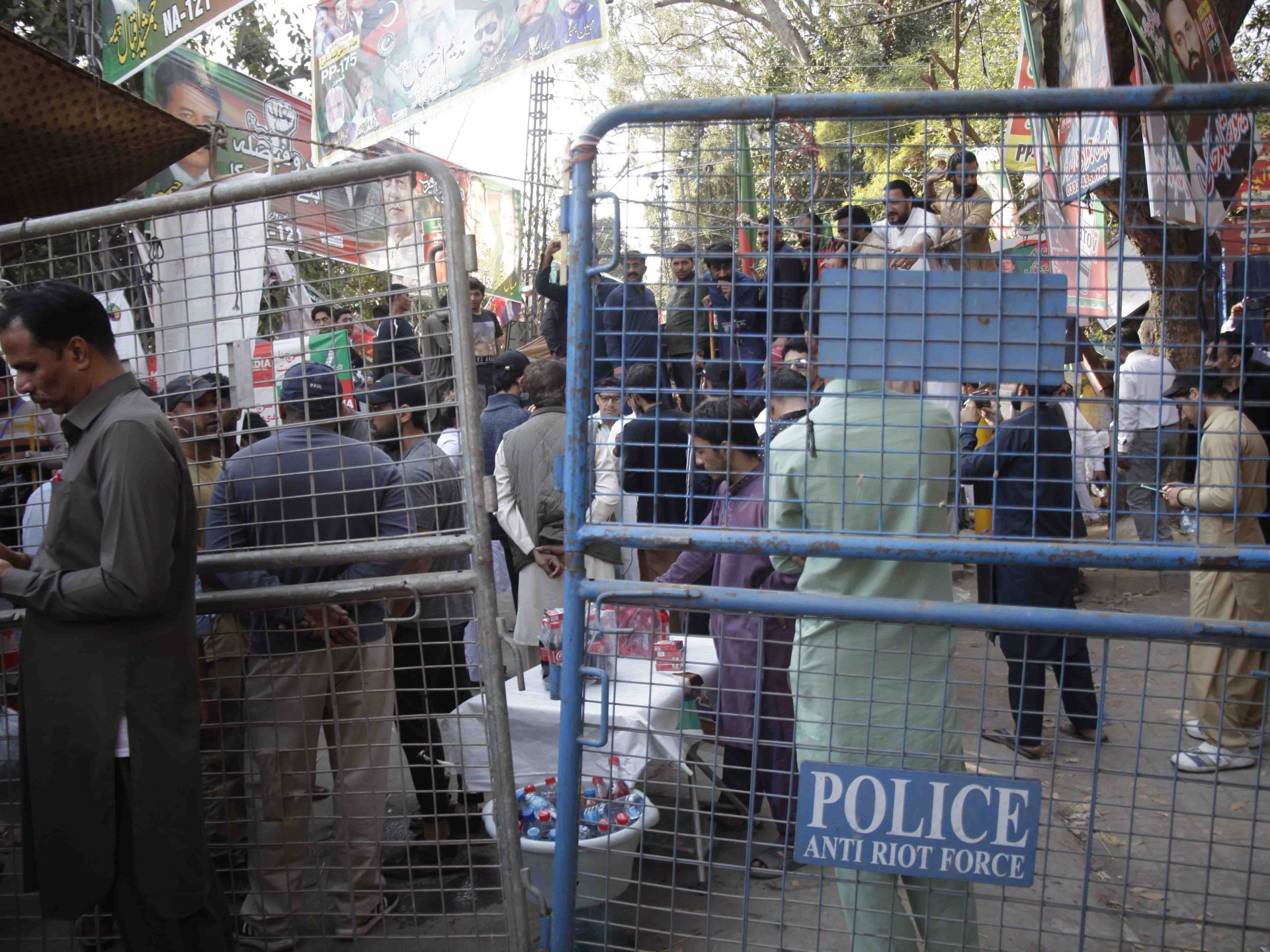Pakistani police said they had tried on Sunday to arrest former Prime Minister Imran Khan, who is facing multiple court cases and is pressing the government to organize early elections.
Elements of the Islamabad police arrived at Khan's house in Lahore, where hundreds of his supporters gathered, but did not find him.
"A team of Islamabad police has arrived in Lahore to arrest Imran Khan, following court orders," Islamabad police said in a tweet.
She added that a police official entered the house, but Imran Khan "was not there."
An arrest warrant was issued against Khan, 70, after he did not appear in court on February 28 in a corruption case, as he was accused of not announcing the gifts he received while in power.
Later in the day, Imran Khan addressed his party members at his home while the policemen remained outside: "I was called in on bogus cases (...) It would not bode well for the country if the nation did not stand up to the corrupt rulers."
Government officials must declare all gifts they receive, but they are allowed to keep gifts whose price is less than a certain amount.
Khan will appeal to the Supreme Court
And the head of the party "Insaf" Pakistan Prime Minister Imran Khan dismissed that he is going to appeal to the President of the Supreme Court to obtain an exemption for him from attending the hearings of his trial in corruption cases.
Khan told a crowd of his followers that he would not attend because there were risks to his life and the cases against him were not serious.
He said in an interview with "Al-Jazeera Mubasher" that the Pakistani government fears that his party will win the elections, and that is why it is trying to put him in prison.
On the other hand, the advisor to the Pakistani Prime Minister confirmed to Al-Jazeera Mubasher that Parliament will not be dissolved, and that the elections will be held on time.
For his part, Shah Mehmood Qureshi, deputy head of the "Insaf" party, told reporters that the note they had received from the Islamabad police did not include "any arrest warrant."
"We will consult our lawyers and follow the legal process," he added.
Pakistani courts are often used to launch long and arduous procedures to clamp down on political opposition, according to human rights advocates.
Banning TV channels from broadcasting Khan's speeches
Pakistan has banned its television channels from broadcasting the speeches of former Prime Minister Imran Khan, the Pakistan Electronic Media Regulatory Authority (PEMRA) said, accusing the opposition leader of making "baseless accusations and spreading hate speech" against state institutions and employees.
On Sunday, the authority said Khan's actions "harm efforts to maintain law and order and are likely to disturb public peace and tranquility," while directing all satellite channels not to broadcast any of his press conference or speech, recorded or live.
It added that licenses would be suspended if the order was not complied with, according to Bloomberg News on Sunday.
Khan, who was shot at a rally last year, is pressing for early elections no later than next October by organizing rallies, quitting parliament and dissolving two regional assemblies controlled by his party to twist the government's arm.
Pakistan, with a population of 220 million, is facing an economic crisis, with a sharp rise in inflation, insufficient reserves of hard currency, and stalled negotiations with the International Monetary Fund.

